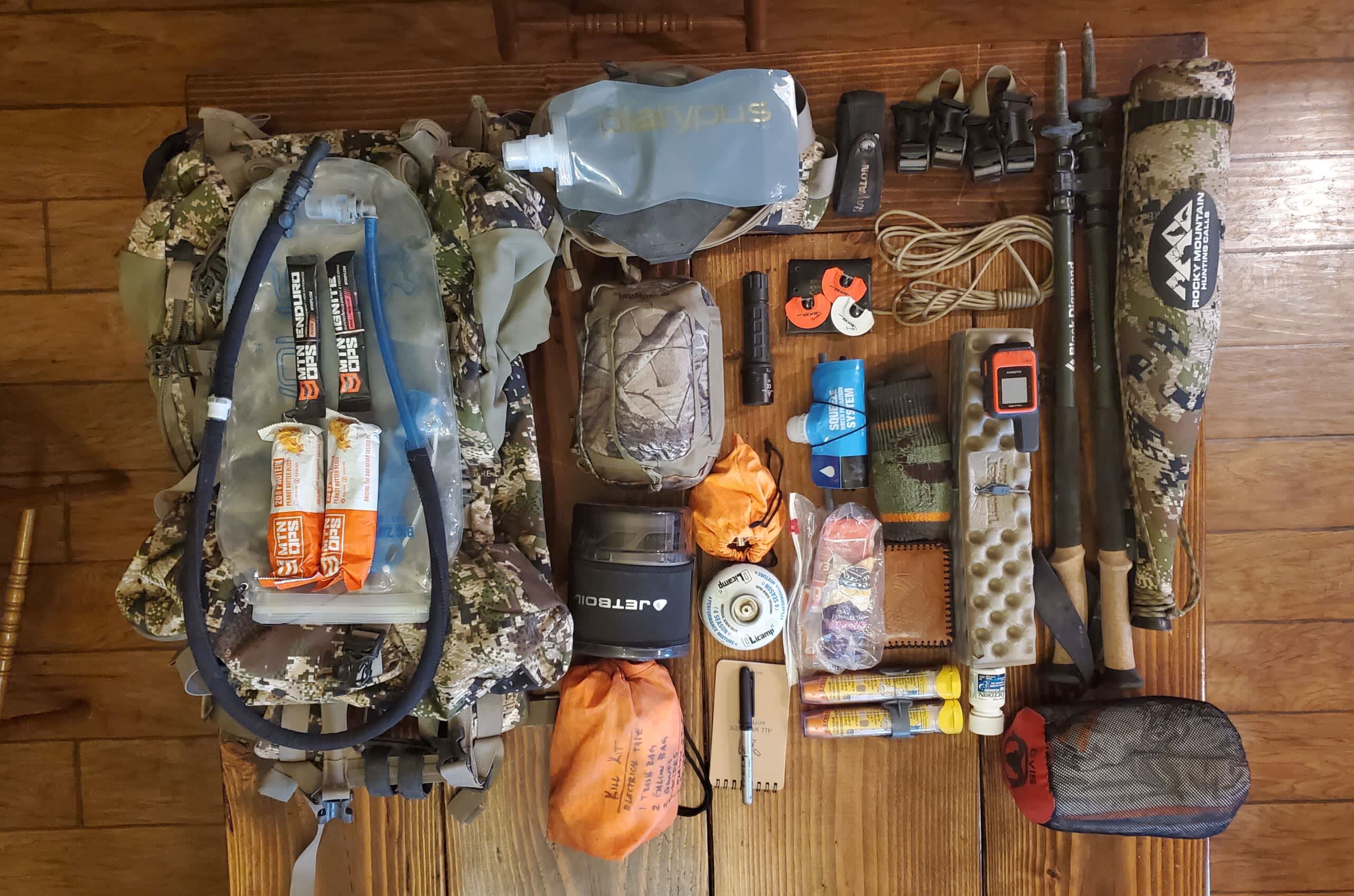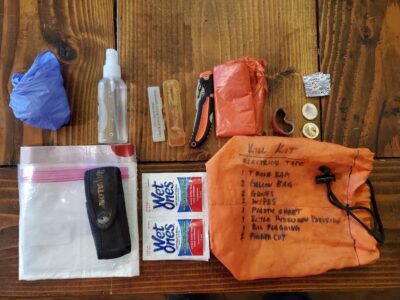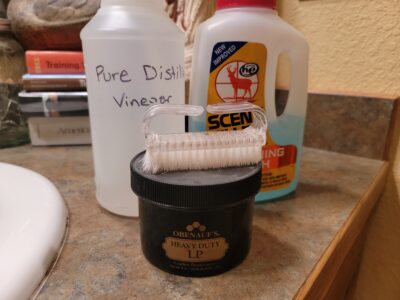Rules for Hunting Gear
Everett Headley 05.23.23

I appreciate a good piece of gear. When it excels beyond its designed purpose, an attachment grows. I still have a fleece balaclava that I bought fifteen years ago and haven’t worn in eight. Like a retired hunting dog, it’s earned its rest at home. Poor gear gets dropped in a box and is only referenced with profanity, if at all. Hunting doesn’t require more than a weapon and determination, but technology can certainly tip the advantage towards you when battling the elements. A few other considerations can further safeguard your adventures.
Prove it at home.
Unproven gear is an enormous unknown. New equipment should be unboxed and examined before taken afield. A few practice sessions learning the “ins and outs” will reveal weak spots in the piece and your grasp of its performance. Real world expectations often exceed design recommendations and if you push past these limits at home you can easily replace it. Knowing just how far you can bend something before it breaks can be vital information in the field. There is also the added bonus of disposing of micro trash and removing unnecessary parts.
Double Up.
My military readers will recognize this mantra: Two is one, one is none. As much as my budget, weight allowance, and common sense will allow, I carry spares with my gear. Some things that are crucial to survival or continued hunting, like fire starters, live in my pack (I have at least 3 ways to start fire on me at all times). Other larger items with less propensity to break my stay at camp. You only need a rifle or bow to break once before you vow to never allow it to ruin a hunt again. Exactly what you carry and where will depend on your own hunt styles and limitations. The Boy Scout motto, “Be Prepared,” will never be bad advice.
Double Duty.
In a similar vein, if something can do two jobs then you need half as much equipment. Wrapping duct tape around a scent checker, flashlight, or lighter is classic. Removing disposable batteries means everything can run on one rechargeable batter pack. The charger I carry is about the size of two double AAs and will charge everything at least twice. With new features, many jackets and coats have greatly improved the range they are effective.

Choose quality.
Near the top of the list of questions from new hunters is “What gear do I need?” A complete gear list full of top brands is out of reach for nearly all hunters just starting. Upgrades to quality gear can be prioritized and bought as able. “Buy once, cry once” still applies and there isn’t a substitution for gear that provides several seasons of service. Lifetime warranties often have fine print, but companies that stand behind their product long after the sale generate loyalty. Deals can be found on online resale sites, just make sure give it a second look before purchasing.
Refine your gear.
Necessity is to invention what personalizing is to gear. Ask an old-timer why and he’ll likely say “because it works.” His time afoot in wild places has seen gear break, tear, stretch, shred, burst, and in myriad other ways fail. In the best case, this means an uncomfortable trek until you return to camp; in the worst, it can threaten your life. Cutting a strap might seem like sacrilege, but if it works it won’t matter. If it doesn’t, there’s always someone that can fix your “mistake.” Your kit needs to work for you, which can mean unique applications or alterations. Embrace an experimental attitude in your approach.
Make Lists.
Gear lists are as essential to the hunt as what they record. The organization they provide decreases the anxiety of missing something and prevents overlooking others. Psychologists have had much to say about the benefits lists provide beyond the obvious. Lists work best when specific to the hunt or circumstance. A general gear list might have a subsection if waterfowling, archery, or rifle hunting. My gear list includes a smaller list for my kill kit, med kit, and day pack. The best practice is to check it before and after every hunt and replenish immediately when it’s needed.

Care for your gear.
Again, for you military guys, you’ll know “take care of your feet, they will take care of you.” This applies equally to gear. Waterproof boots regularly, not when convenient. Don’t wait to refill your kits after hunting, do it as soon as you get home. Wash packs quickly, when it is easier, rather than trying to rub dry blood. Look at the manufacturer’s suggestion for regular maintenance and add it to your calendar. Frequent checks on disposable items like drink mixes, wet wipes, and snacks keep ensure they are fresh for the next round.

